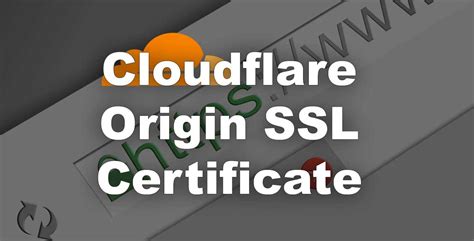For many website owners, the topic of SSL certificates seems straightforward—an essential layer of security to protect data and user privacy. However, recent user experiences highlight that the management and revocation of SSL certificates, particularly those issued by Cloudflare, can be far from simple. Navigating the bureaucratic entanglement between domain registrars, Certificate Authorities (CAs), and service providers unveils a labyrinthine aspect of cybersecurity that few anticipate but many might end up grappling with.
Imagine finding SSL certificates issued for your domain that you’ve never requested. One user noted multiple year-long certificates for a domain unrelated to any active Cloudflare services. Frustration mounts when attempts to revoke these certificates lead you into an unresponsive fray. The user eventually reached out to Digicert, the CA responsible for the certificates, only to be directed back to Cloudflare’s labyrinthine abuse report form—a stark reminder of the obstacles involved. While it’s not an urgent security threat if the domain is inactive, the inconvenience and potential risk cannot be ignored.
What adds complexity is the role of various service providers and registrars like Porkbun, which might indirectly utilize Cloudflare’s infrastructure. This raises questions of transparency and consent. Take for example one user who suspected Porkbun, their domain registrar, had requested these certificates on their behalf. Porkbun support, however, disclaimed any knowledge of these SSL certificates. This ambiguity highlights how even indirect associations with Cloudflare’s services could result in unintended SSL issuance.
The suggestion of contacting the CA directly offers a logical but not always effective pathway. As one commenter aptly pointed out, the CA is compelled to respond within 24 hours. If the original requesting party—likely Cloudflare in this context—does not expedite the process, you’re left in a cycle of delays and intermediate standoffs. The Certificate Transparency logs indeed expose all certificates issued, but revoking them without clear ownership or requested permissions involves wrestling with bureaucratic protocols.
Moreover, many users do not realize the ramifications of DNS records set by Cloudflare without explicit permission. Domains associated with Cloudflare often witness automatic SSL issuance, sometimes without the domain owner having initiated any services that might require such certificates. This automatic generation of certificates aims to streamline security but inadvertently complicates the control owners have over their domains.
A potential solution rests in enhancing the revocation mechanisms and transparency of these processes. Existing tools like Let’s Encrypt’s API for revoking certificates offer one approach, but they rely on having completed all challenges for every DNS name linked to the certificate. This is not always feasible for users who find themselves in unexpected situations. The user experience should not be marred by unseen bureaucratic walls, but rather facilitated through clear and user-friendly pathways.
Furthermore, the debate around whether browsers implement revocation in a meaningful way raises an essential point about the redundancy of certificate lifespan. For instance, certificates that last a year leave a long window of vulnerability should any security incidents occur post-deployment. The Online Certificate Status Protocol (OCSP) and OCSP stapling were designed to mitigate these issues, but their adoption and effectiveness vary across platforms. Firefox, for instance, does provide revocation checks, but this isn’t universal among all browsers.
In light of these issues, there is a growing consensus among users and cybersecurity experts that enhancing domain management transparency is crucial. Registrars and DNS providers should be more explicit about their SSL certificate practices, particularly when leveraging third-party services like Cloudflare. Clear documentation, user-friendly settings, and dedicated support channels could drastically simplify incident management and minimize the associated risks. Ultimately, better industry standards for SSL certificate management, issuance, and revocation align with broader goals of cybersecurity resilience and user autonomy.


Leave a Reply